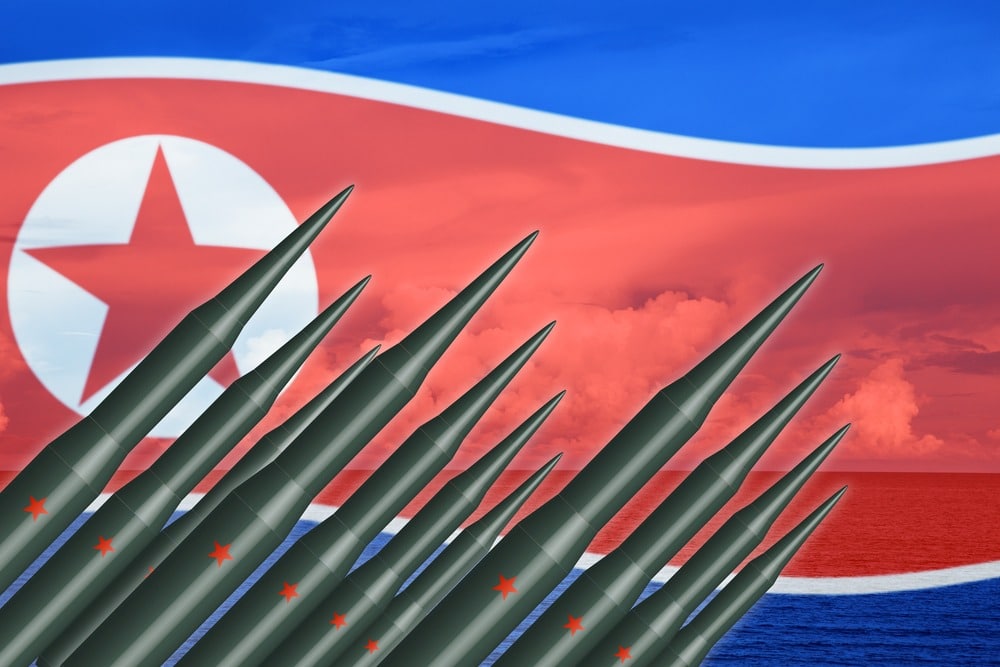What to make of the collapse of the Hanoi summit
By Ankit Panda, February 28, 2019
 Image courtesy of Shutterstock
Image courtesy of Shutterstock
With about 12 hours having elapsed since the end of diplomatic discussions between the United States and North Korea in Hanoi, we’ve heard from both sides about the causes of collapse.
For the United States, it was North Korea’s big ask on sanctions relief, which Trump described as representing the “entirety” of the international sanctions regime. Additionally, Washington asked North Korea to move forward on granting access to inspectors at the Yongbyon nuclear complex, but wanted “one more” site or gesture. What precisely this may have been is unclear, but it is possible that the United States sought access to the suspected Kangson enrichment site, one of North Korea’s two covert uranium enrichment plants known to the US intelligence community.
North Korea’s read on the cause of collapse pushed back on Trump’s explanation. Ri Yong Ho, the country’s foreign minister, explained that it sought a “partial” relief from the existing roster of 11 United Nations Security Council resolutions put in place since 2006. Ri clarified that the relief North Korea sought was related to the five resolutions passed in 2016 and 2017, which represent a disproportionate amount of the international pressure currently on the regime—affecting some 90 percent of North Korea’s export volume prior to sanctions. North Korea did not seek total repeal of all aspects of the resolutions, but wanted a specific clause-by-clause sectoral relief package before it would allow its nuclear fuel production capabilities at Yongbyon to come on the negotiating table.
The United States was unable to accept this. And it appears that was the moment that North Korea decided there would be little more to discuss at this point.
In the North Korean view, the Hanoi summit—as supported by multiple official statements from the regime in state media and at Kim Jong-un’s New Year’s Speech—was to be about what Washington would offer Pyongyang for additional denuclearization gestures.
The answer at Hanoi? Washington would give nothing until North Korea gave up more. With no agreement on sequencing, there was no deal.
----------
Washington Hardliners won the day in preventing a successful conclusion to the Hanoi Summit between DPRK Chairman Kim and US President Trump....
In place of Steven Biegun, who had heralded some sort of declaration of the end of the Korean War, was seated the Neocon John Bolton.
Especially among peace activists and in particular the ROK President Moon Jae-in, there was anticipation of a break through agreement after stalling for much of the year since the Singapore Summit last year.
Maybe John Bolton got an assist from the The Democratic Controlled House where many members are against anything Trump does, including engagement with North Korea. They scheduled the Cohen Hearings on the same day as the 2nd day of the summit, distracting the public away from Hanoi.
Cohen, formerly Trump's personal lawyer and fixer, is under threat of going to jailed for years connected to crimes dug up by the ongoing Meuller investigation against Trump, which he has called a witch-hunt.
During the hearing, Cohen called Trump many nasty things and charged him with multiple failings and possibly illegal activities from putting down blacks to paying off prostitutes.
As someone asserted, faced with attack in Washington, Trump could not walk away with a small deal. He may also have been distracted. Instead of comprise, he may have stiffened or increased the demands, taking the cue from Bolton.
The North Koreans insisted that dismantling Yongbyon and cessation of testing should have been enough to lift partial sanctions, particularly those imposed since 2016, with the hardest impact on the economy.
They may have misread the level of pressure Trump was under. Perhaps they could have given more and increased the stakes for even a bigger deal that could have been a bigger win for both them and Trump.
This was a lost opportunity.
The bright side is that they reaffirmed Freeze for Freeze. They also agreed to continue talking.
No comments:
Post a Comment